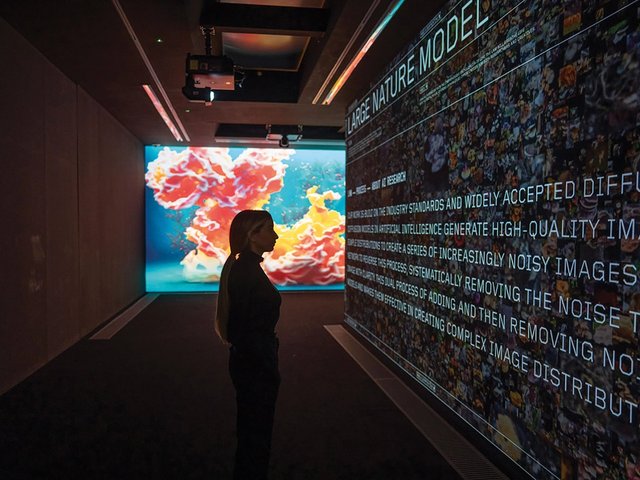If you have ever needed to send a file larger than 20mb, you have probably used or at least heard of the online file-sending service WeTransfer. You may have also heard, earlier this month, a chorus of uproar on social media led by artists sharing screenshots of WeTransfer’s updated terms of service agreement and highlighting a clause that granted the company the right to use all materials transferred via their service, without any remuneration to the uploader or regard for their privacy.
Having personally relied on WeTransfer’s services for over a decade, mostly to send large files of my photographs to my printer in Istanbul, I went down the rabbit hole of WeTransfer’s legalese to understand the exact nature of the recent outrage.
Under the company’s new terms, published on 14 July and subsequently revised, using its services would have granted the WeTransfer “a perpetual, worldwide, non-exclusive, royalty-free, transferable, sub-licensable license to use your Content for the purposes of operating, developing, commercialising and improving the Service or new technologies or services, including to improve performance of machine learning models that enhance our content moderation process, in accordance with the Privacy & Cookie Policy”.
For those wondering exactly how the company might take advantage of this wildly overreaching license, the terms contained a list that included “the right to reproduce, distribute, modify, prepare derivative works based upon, broadcast, communicate to the public, publicly display, and perform Content”. The document noted that users would not be compensated in any way for having their content repurposed by WeTransfer.
A devil’s advocate argument could be made that such uses are simply the cost of sending up to 2gb of digital files for free. My general assumption about the ways tech companies monetise users’ data has always been that the sheer volume of data aggregated offers a degree of anonymity to individual users. But the magnitude of privacy violations in WeTransfer’s new terms of service was staggering and presented a slew of problems.
My mind went to my recent US Green Card petition, which contained 200 pages of materials as well as confidential letters of recommendation and was sent to my immigration lawyers via WeTransfer. I thought about the recent file of a photograph I had sent to be printed for a private collection. What if they discovered a variant of what they believed to be a unique work, generated without my knowledge and used for a WeTransfer banner ad next month?
As an artist, I have always been very protective of my work, especially when it comes to museum or corporate collections. These acquisitions often come with paperwork that includes clauses similar to WeTransfer’s, with wording that makes me wonder: “Will they make coasters out of my photographs?” Knowing how difficult prompting artificial intelligence (AI) to generate the perfect image can be, after reading these terms, this fear was replaced by another: “Will they make ugly and derivative coasters out of my photographs?”
A dystopian turn
WeTransfer’s expansively self-serving terms reminded me of my favourite science-fiction saga, Dan Simmons’s Hyperion Cantos (1989-97), in which the teleportation technology the entire galaxy relies on is secretly a way for the AI singularity to non-consensually mine people’s brain computing power for a few microseconds. The Matrix film franchise had a similar premise, replacing Simmons’s concept of brain computing power with bio-electricity, with machines using people as batteries, again without their consent. In both dystopian visions of the future, villainy is defined by this invasion of privacy, hijacking of agency and lack of informed consent.

Human beings serving as batteries in a scene from The Matrix (1999) Courtesy Warner Bros.
For a company that once defined itself by not being the typical Silicon Valley tech giant and sharing profits with artists, it is interesting that WeTransfer decided to enter its villain era in 2025. Following the online backlash, the Amsterdam-based company updated the offending clause in its terms of service. It now reads: “In order to allow us to operate, provide you with, and improve the Service and our technologies, we must obtain from you certain rights related to Content that is covered by intellectual property rights. You hereby grant us a royalty-free license to use your Content for the purposes of operating, developing, and improving the Service, all in accordance with our Privacy & Cookie Policy.”
While this seems like a meaningful step back from the troubling terms the company previously imposed, WeTransfer is effectively still saying it has the right to use any content transferred via its services. Within the European Union, under the General Data Protection and Regulation act, it is possible to demand a company delete the data it has gathered on you.
But WeTransfer’s Privacy and Cookie Policy also states: “There are scenarios where we can't erase your personal information, such as when: The data is still needed for the reason we gathered it. WeTransfer’s interest in using the information outweighs your wish for its deletion. This might be the case when we require the data to protect our services from fraudulent or illegal activities.”
Conveniently obscure, these terms inspire little trust towards a company that was previously at least quite transparent about exploiting users’ digital shipments. WeTransfer also published a blog post specifying that the AI training clause had been introduced for possible future uses and that the company has since abandoned those plans. It also points out that even before the offending language was added, the company’s terms of use contained the following passage: “You hereby grant: [WeTransfer] an unlimited, worldwide, royalty-free, sublicensable, and transferable license to (i) use, host, store, scan, search, sort, index, create previews and (ii) reproduce, communicate, publish, publicly display, distribute and edit and prepare derivative works from (including but not limited to scaling, cropping, adapting and translating) the Content.”
In other words, WeTransfer already had the right to repurpose users’ content for a long, long time, and most of us seemingly did not know or care about it until AI training was added to that language. Are we only comfortable being taken advantage of when the process is human-led? Digital companies have been monetising our data for the better part of 20 years and, until recently, that process did not involve AI, if only because there was no sufficiently sophisticated AI to involve.
As online vitriol against machine learning technologies continues to illustrate just how ill-informed we are about technology in general, we need to bear in mind the age-old saying: “If the product is free, you are the product.”







